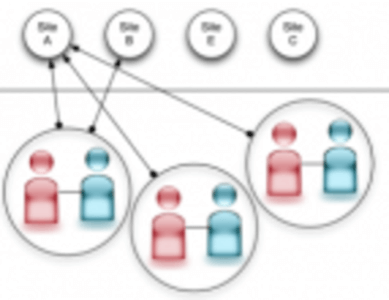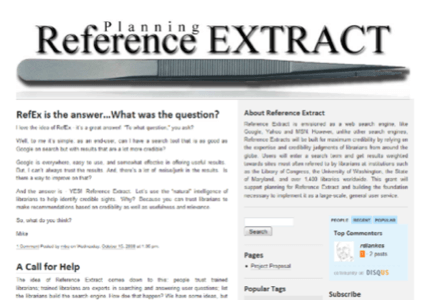What would Google look like if it was built by librarians? We’re about to find out. A project called “Reference Extract,” has a goal of building a web search engine where the weight of the search results aren’t determined by any sort of algorithm like PageRank, but rather by the expertise and creditability judgments from librarians around the world. In other words, it’s smart people-powered search.

The Reference Extract project is being developed by the Online Computer Library Center and the information schools of Syracuse University and the University of Washington. According to Wired Campus, OCLC is an international cooperative that shares resources among more than 69,000 libraries in 112 countries and territories. A $100,000 grant from the John D. and Catherine T. MacArthur Foundation is covering planning costs.

In response to one of the questions posed on the homepage, project partner R. David Lankes explained the difference between this and an online directory like DMOZ.org. Instead of building out a directory of sites, the Reference Extract project will instead focus on answering “real questions around the world.” By answering a lot of questions, the service scales up and generates a lot of “semantic richness” with which a search engine and other services can be built, says Lankes.
He also notes that the engine isn’t really trying to compete directly with Google, Microsoft, or Yahoo as an everyday search tool. Although some people might begin searches directly from the Reference Extract homepage, the other search engines will end up returning results from the project and thus leading new users to click through for the answers they need.
That last bit sounds a lot like the model Wikipedia uses. Sure, you can search Wikipedia from its homepage, but you’re more likely to Google something and end up on a Wikipedia page that appeared at the top of the search results.
However, unlike Wikipedia, Reference Extract won’t simply focus on basic facts about people, places, or things, but will answer questions on a wide range of topics, just as librarians do today. In the end, the project may not out-Google Google, but it will lend something to search results that we’ve never had before: credibility.










